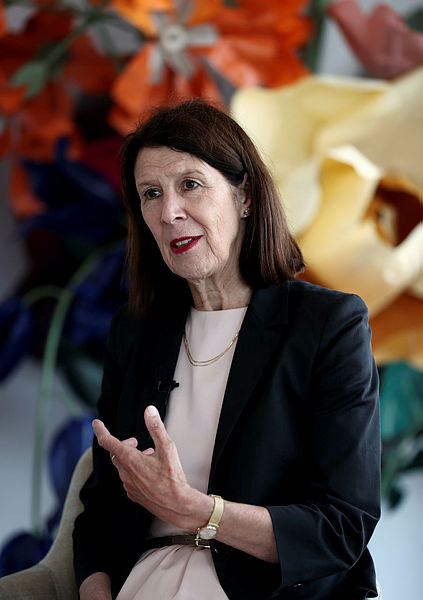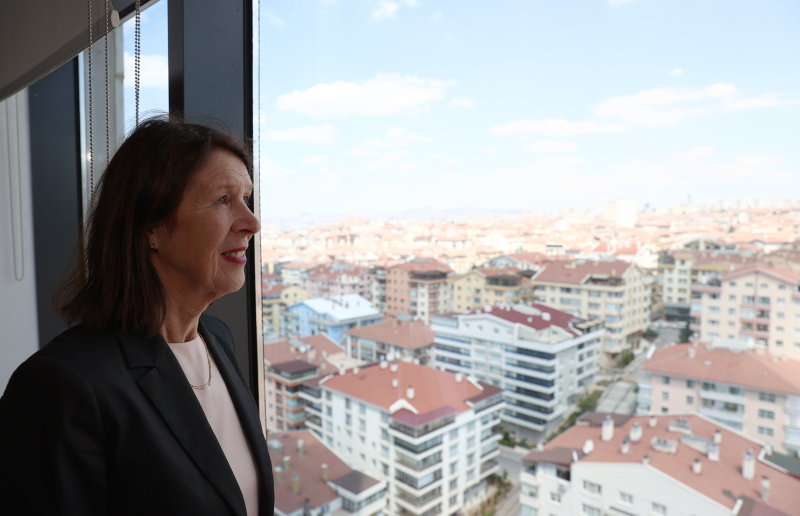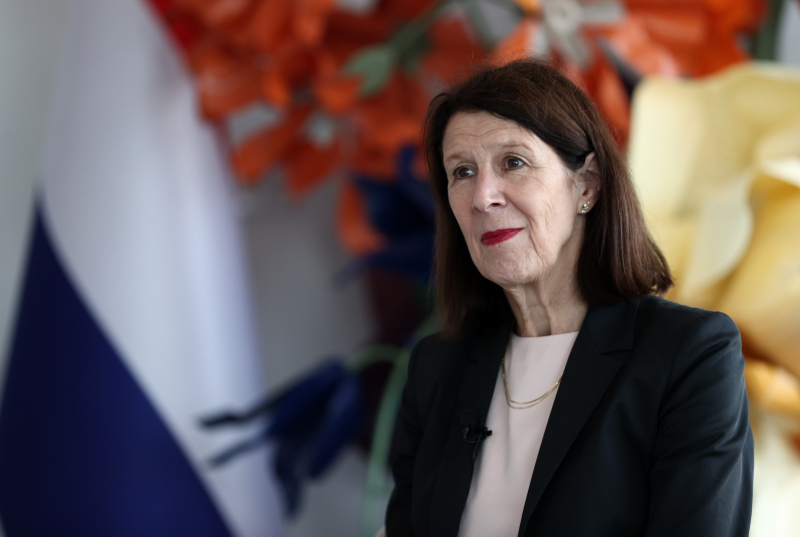Türkiye is "the best (place) you can have" as a last posting before retiring from the diplomatic service, the Dutch ambassador to Ankara told Anadolu Agency in an exclusive interview.
"Well, Turkey, I think, as a last posting, as I'm going to retirement, is the best you can have. Because the country is beautiful," Marjanne de Kwaasteniet said. "The people are very kind and generous. And the issues you're dealing with are complicated, but interesting."
So it is "never easy, but always challenging and also very rewarding," added Kwaasteniet, who is wrapping up a four-year tenure in the Turkish capital.
Noting that she has known Türkiye for a long time, he said: "My very first trip to Turkey was in 1976 when I was still a very young student, and from that time I've always had a soft spot for Turkey in my heart."
"So to be here in my last posting really has been a fantastic experience," she continued.

The ambassador stressed that the relationship between Türkiye and the Netherlands has been "flourishing over the last couple of years."
"Despite the pandemic, we were able to have many contacts at the political level. Trade figures went up. It could have been more if the pandemic had not been there but still, I think we made a good effort," Kwaasteniet said.
Saying that cultural ties between the two nations have become more "intense and stronger," she added: "But all in all, I think leaving this country, I can look back with a lot of satisfaction and about what has been reached."
The ambassador said that there is already a lot of trade going on between the countries but it could be much more.
"In trade, there is a lot of potential," she said, adding that there are over 3,000 Dutch companies active in Türkiye.
"And there are so many ties because of the Dutch-Turkish community," she said. "So it comes naturally almost that the two countries trade with each other."
A more stable economic policy in Türkiye would help the trade potential be more fully realized, she added.

"I was very happy and proud as our prime minister came to Turkey this March," she said, noting that a visit by Mark Rutte had been planned for some time but it was delayed by the pandemic.
"So it was good that I could still see the prime minister coming before my departure," she added.
On the other highlights of her tenure, she said that in terms of civil society cooperation, lots of interesting things were done.
"I've met many women working on the issue of empowering women, creating more space in society for women, for fighting violence against women," she said. "And they were always impressive encounters. I was really impressed by the energy and the wish to really change things in the society that these women expressed."
On sustainability, she said the Dutch encourage bicycling and sponsor cyclists.
"So I've been cycling everywhere in this country in Rize, in Kahramanmaras, in many places," she recounted. "And of course, we realize that Türkiye is not the same as the Netherlands. The distances are much longer and the country is quite hilly. So cycling can never take the same meaning as it has is the Netherlands."
"But still, I think it's worthwhile to expand it, because there are parts of the cities where you can cycle. And there are cities that are fairly flat, like Konya, where cycling could even be further developed," she added, calling cycling an important sports activity.
She also noted that two countries are cooperating to make textile industry more environmentally friendly and said: "We need to develop green technologies."

Although it is always a challenge for women to work in an environment dominated by men, Kwaasteniet said being in her position shows that you can reach the highest ranks, so no one should give up before trying.
Noting that male domination of the workplace is now changing and there are more places where half of the staff are women, she said when she began working in the Security Department of the Dutch Ministry, she was the only woman out of 28 staffers.
"And the same when I was ambassador to Jordan, for three years, I was the only female ambassador there. Was it difficult? No, it was not so difficult," she said.
"If you're confident about your abilities, and you simply focus on your work, it is not difficult, and it comes naturally to you. I mean, your profession is the most important thing, you are a professional, you do your work. And that is the most important thing," she added.
Kwaasteniet, formerly the Dutch ambassador to NATO, said that being together being a NATO ally like Türkiye "is a very strong bond."
"Whenever my prime minister meets the president (Recep Tayyip Erdoğan), security is on the agenda. And whenever they see each other, they talk within the framework of NATO," she said. "I think to be together, NATO allies, is a very strong bond."
On bilateral ties, she went on to say: "We fought together in Afghanistan against the Taliban. We lost soldiers there, and these kinds of experiences created a very strong relationship. "
"Of course, the Netherlands is in a different geographical position. We are in the northwestern part of Europe, where everything always looks quite safe. Turkey is in the southeastern flank of NATO, where the environment is more volatile, more rough," she added, noting that that is why Türkiye's perspective on its security situation is different from theirs.
"That's logical, like ours is different from the one of Poland and the Baltic states," Kwaasteniet said.
"And so, in the NATO alliance, it is very important that you keep on talking, that you try to understand the security concerns of the other party. And that, together, you develop a perspective of where NATO should go. So this continuous dialogue is extremely important," she added.